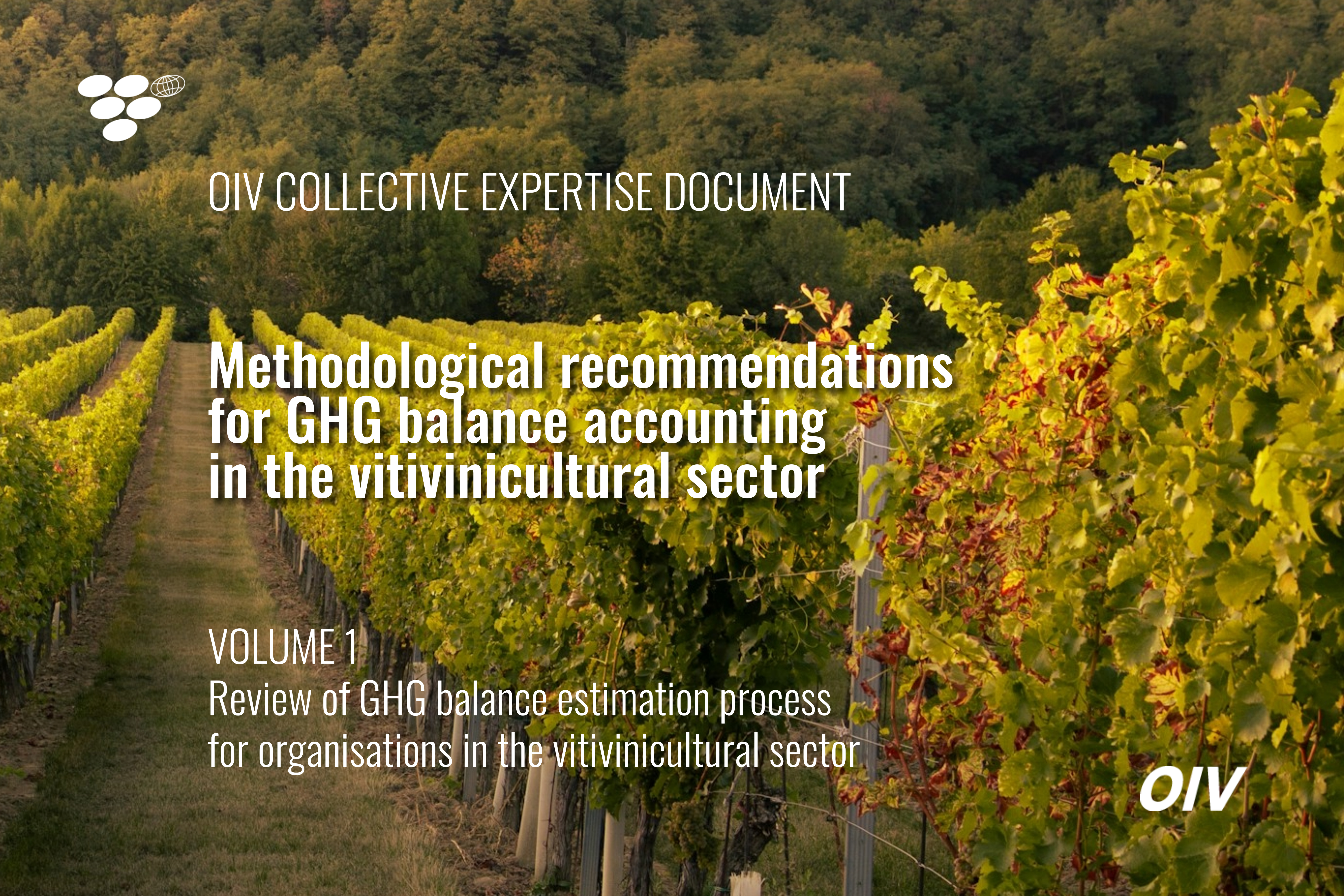La Organización Internacional de la Viña y el Vino (OIV) se complace en anunciar la publicación del documento de experiencia colectiva titulado “Methodological Recommendations for Accounting for GHG Balance in the Vitivinicultural Sector – Volume I”.


Este documento actualizado, basado en la edición de 2017, tiene como objetivo orientar a los actores del sector interesados en estimar su balance de gases de efecto invernadero y completar las recomendaciones ya aprobadas por la OIV.
Una respuesta específica
A medida que los efectos del cambio climático se intensifican, el sector vitivinícola —estrechamente ligado a las condiciones medioambientales— afronta riesgos crecientes. Pero al margen de los necesarios esfuerzos de adaptación, el sector demuestra un potencial significativo para liderar el camino hacia la mitigación, dado que los estudios indican que la producción sostenible de vino suele implicar una menor contribución al calentamiento global en comparación con otros productos agroalimentarios.
En este contexto, comprender y reducir las emisiones de GEI no es solo una exigencia normativa, sino un paso fundamental para garantizar la sostenibilidad a largo plazo. El cálculo del balance de GEI es una herramienta de gestión que permite a las organizaciones entender, identificar, evaluar y cuantificar las principales fuentes de emisiones y remociones de GEI a lo largo de su cadena de valor o del ciclo de vida del producto.
Novedades de la segunda edición
Este volumen, primero de una serie de publicaciones, presenta un enfoque sectorial integral para el cálculo de GEI. El Volumen I ofrece:
- Una hoja de ruta detallada para el cálculo de GEI, tanto dentro de la organización como a lo largo del ciclo de vida de un producto
- Información útil sobre bases de datos disponibles, la calidad de los datos y el manejo de la incertidumbre
- Un resumen de las metodologías reconocidas por la OIV para estimar emisiones y remociones, según el Protocolo de GEI de la OIV
Con un diseño claro y práctico, este volumen actualizado garantiza una orientación accesible para todos los usuarios. Al estructurar el documento por volúmenes y de forma modular, la OIV facilita una actualización dinámica del documento en función de futuros avances.
Asimismo, este documento permite desarrollar balances de GEI de alta calidad dentro de una organización, o inventarios de emisiones de productos, un proceso interno que requiere tiempo y esfuerzo.
Informar correctamente sobre el balance de GEI se está convirtiendo cada vez más en una cuestión de gestión, debido a posibles barreras comerciales relacionadas con la huella de carbono, nuevas políticas y normativas relativas a la descarbonización y mayores exigencias en materia de diligencia debida de las cadenas de suministro frente al cambio climático.